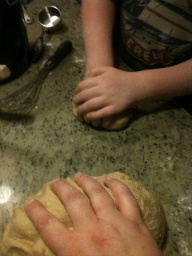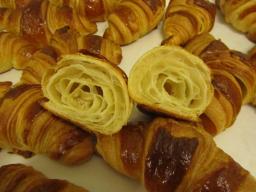
Turkish flatbread
Really intrigued by reports and comments on Nick Malgieri's Turkish flatbread. Can anyone post the recipe, please?

Really intrigued by reports and comments on Nick Malgieri's Turkish flatbread. Can anyone post the recipe, please?

I am participating in testing recipes for the New York Jewish Bakers Book. One of the recipes that I baked was the "Plovnik, or Black Bread".
This was such an intriguing recipe, with strong, rich flavors, that I wanted to get some more information about it.
My first stop when looking for information is, of course, GOOGLE. The only hits are linked back here. I have found loads of stuff on Black Bread, but no Plovnik.
Anyone got anything on this Beautiful Bully of my Taste Buds??

Wah! Lost my entire post by forgetting to hit save below!
Anyway, there is an article I just read that had piqued my interest: http://www.cbc.ca/health/story/2007/09/27/autism-study.html
It's one study, not replicated, but it can't 'hurt' to try to do a wheat and dairy free diet to see if we see any improvements in the austic behaviors.

If anyone is interested, there will be a hands-on class in building a 4 foot by 6 foot, Ovencrafters oven here in Central Massachusetts USA.
We've scheduled the oven building class for three weekends as follows:
September 11, 12 2010
September 18, 19
September 25, 26.

Awhile back I saw a TV show with an expert on French bread at a Paris bakery and he pulled out a folding serated knife from his pocket to use on the fresh baguettes and I'm desperate to have a knife like that for trollinig through bakeries, but I haven't been able to find one. Has anyone seen or heard of such a knife and where it might be acquired? Thanks


